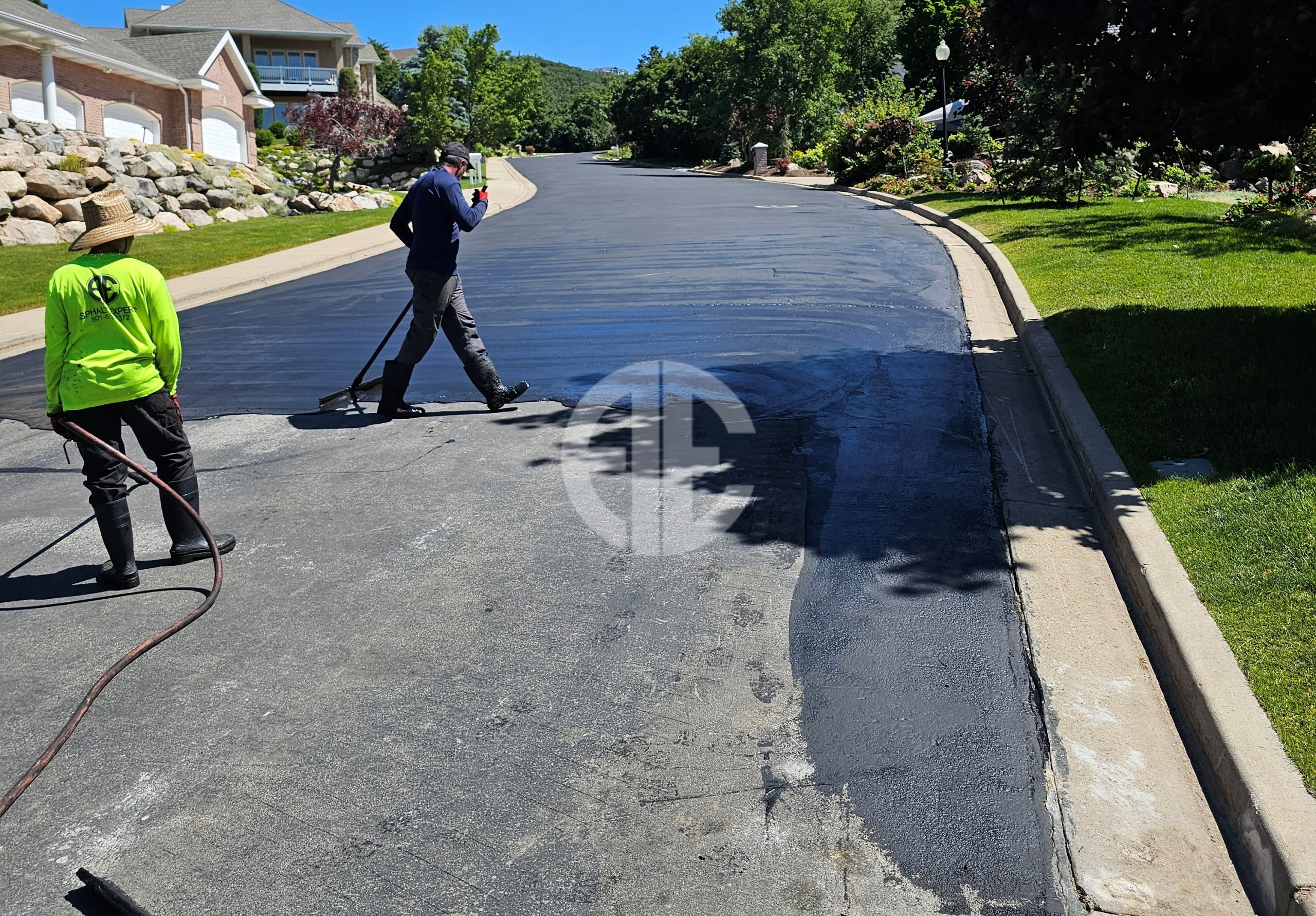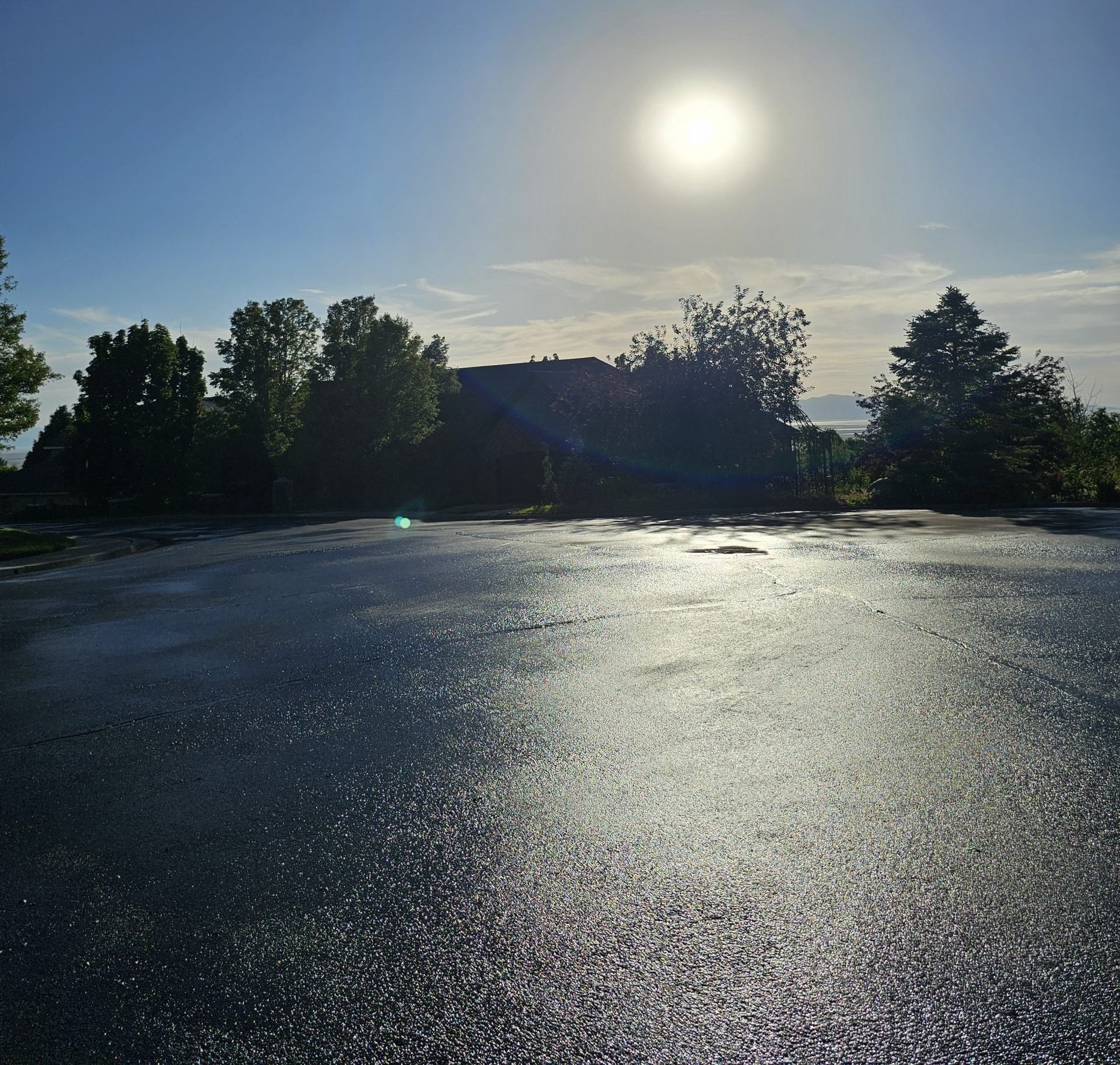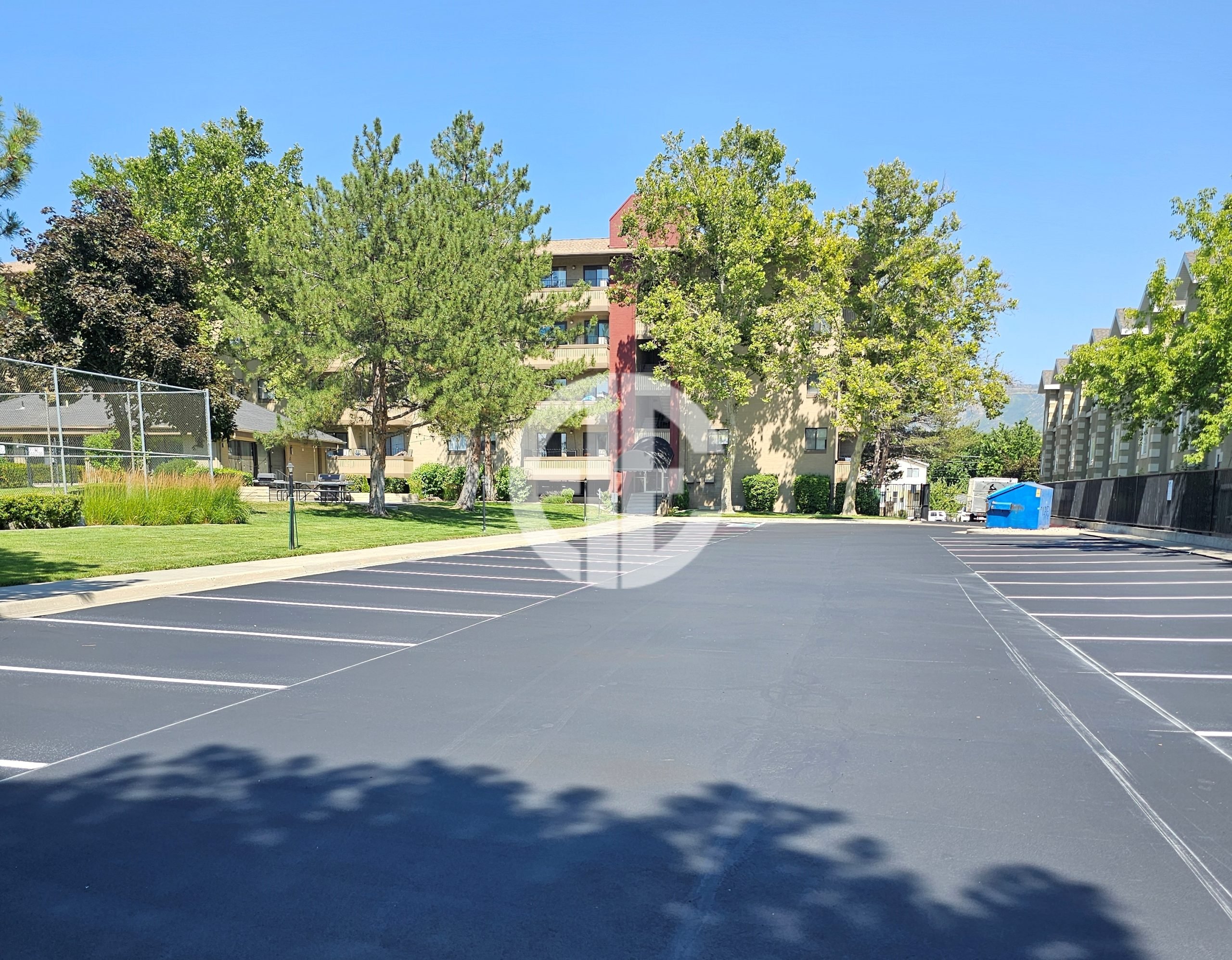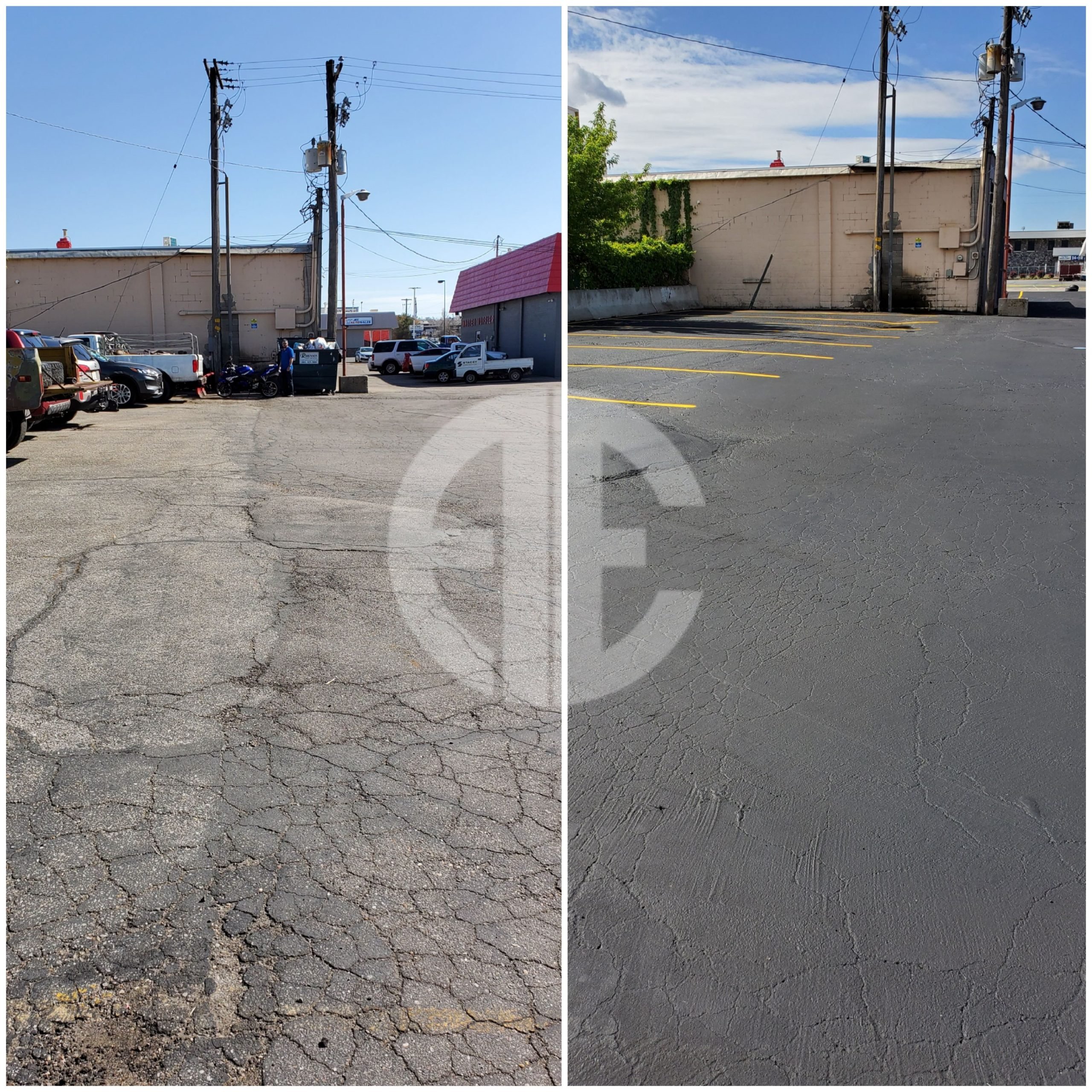Sealcoating is one of the most effective ways to protect and maintain asphalt surfaces, extending their lifespan while improving their appearance. Whether it’s a driveway, parking lot, or commercial pavement, applying a sealcoat forms a protective barrier against environmental damage, oxidation, and everyday wear from traffic. More than just a cosmetic refresh, sealcoating is a crucial step in asphalt maintenance that prevents costly repairs, ensuring that roads and driveways remain strong and smooth for years.
At Asphalt Experts, we understand that regular maintenance is the key to preserving asphalt investments. Sealcoating provides an extra layer of defense, preventing cracks, potholes, and premature deterioration. By following the right process and maintaining a seal-coated surface properly, property owners can maximize the lifespan of their pavement while saving money in the long run.
Why Sealcoating Matters
Over time, asphalt is exposed to harsh elements, from UV rays and rain to oil spills and heavy traffic. Without proper protection, these factors cause the asphalt to oxidize, dry out, and weaken, leading to cracks and potholes. Sealcoating acts as a waterproofing agent, preventing moisture penetration and reducing damage from freeze-thaw cycles in colder climates.
Another major benefit of sealcoating is its resistance to chemicals, including oil, gasoline, and de-icing salts. Parking lots and driveways often accumulate these substances, which can soften and degrade the asphalt. A properly applied sealcoat keeps these contaminants from reaching the pavement’s surface, significantly reducing long-term wear and tear.
Beyond protection, sealcoating enhances the aesthetic appeal of asphalt. Freshly sealed surfaces have a rich, black finish, instantly improving curb appeal and making commercial properties appear more professional. Faded, gray asphalt can make a property look neglected, but with regular sealcoating, the surface remains visually appealing and well-maintained.
The Sealcoating Process: How It Works
The sealcoating process involves several steps, each of which plays a crucial role in ensuring a durable and long-lasting finish.
The first step is surface preparation. The asphalt must be completely clean and free of debris, including dirt, oil, and grease. Pressure washing is often necessary to remove built-up grime, and oil stains should be treated with a primer to ensure proper adhesion. Additionally, any existing cracks or potholes must be repaired before applying the sealcoat, as the process is designed to protect asphalt, not fix structural issues.
Once the surface is ready, the sealcoat mixture is applied using specialized tools such as squeegees, brushes, or sprayers. The choice of application depends on the size and condition of the surface. Thin, even layers are key to a successful application, and in most cases, at least two coats are applied for maximum durability.
After application, the curing process begins. Sealcoating typically takes 24 to 48 hours to dry, depending on weather conditions. During this period, it is essential to keep vehicles and foot traffic off the surface to allow the sealcoat to bond properly.
Sealcoating Through the Seasons
The best time for sealcoating is during warm, dry weather. The ideal temperature range is between 50°F and 90°F, as extreme heat can cause the sealcoat to dry too quickly, leading to cracks, while cold temperatures prevent it from curing properly.
Sealcoating is not recommended in winter, as the cold air and moisture interfere with the curing process. If maintenance work is necessary during colder months, focus on crack sealing and patch repairs to prevent further deterioration until sealcoating can be applied in the spring or summer.
For hot climates, it’s advisable to cool the asphalt surface before application by lightly misting it with water. This prevents the sealcoat from drying too rapidly and ensures even coverage.
Maintaining a Sealcoated Surface
To maximize the lifespan of a sealcoated surface, regular maintenance is crucial. Cleaning the pavement periodically prevents debris buildup, which can trap moisture and accelerate wear. Oil and gas spills should be cleaned immediately to prevent chemical damage, even though sealcoating provides some protection.
Heavy loads, such as large trucks or construction equipment, can cause indentations in newly sealed asphalt. For high-traffic areas, consider using a reinforced sealcoat mixture to withstand extra stress.
To ensure long-term protection, sealcoating should be reapplied every two to three years, depending on the level of traffic and exposure to harsh weather conditions. Regular reapplication maintains the protective layer, keeping the asphalt resilient against environmental and mechanical wear.
Signs It’s Time to Sealcoat
Sealcoating isn’t something that should be done randomly—it should be applied at the right time to maintain the asphalt’s integrity. If you notice any of these signs, it’s time to schedule a fresh sealcoat application:
- The surface looks faded and gray – Oxidation has begun to break down the asphalt’s binder.
- Small cracks are appearing – These can grow into larger fissures, leading to potholes if left untreated.
- Water is pooling on the surface – Proper drainage is compromised, indicating the sealcoat layer has worn away.
- Oil and chemicals are seeping into the asphalt – If stains are no longer repelled, the surface is no longer protected.
Sealcoating is one of the most cost-effective ways to extend the life of asphalt surfaces while improving their appearance. From driveways and parking lots to commercial pavements, regular sealcoating protects against oxidation, water damage, and chemical exposure, reducing the need for frequent repairs.
At Asphalt Experts, we specialize in professional sealcoating services that ensure durability and long-term protection. Whether you need to maintain a residential driveway or a high-traffic commercial parking lot, our expertise guarantees a smooth, resilient surface that lasts.
If your asphalt is showing signs of wear, don’t wait for costly damage to occur. Schedule your sealcoating today with Asphalt Experts!
Trust Asphalt Experts – Your Partner for Asphalt Care Excellence in Utah









 Clearfield
Clearfield